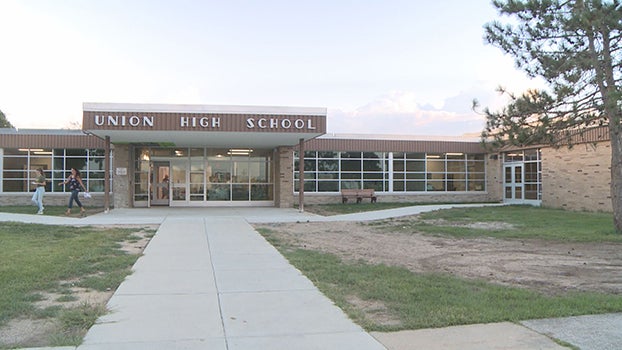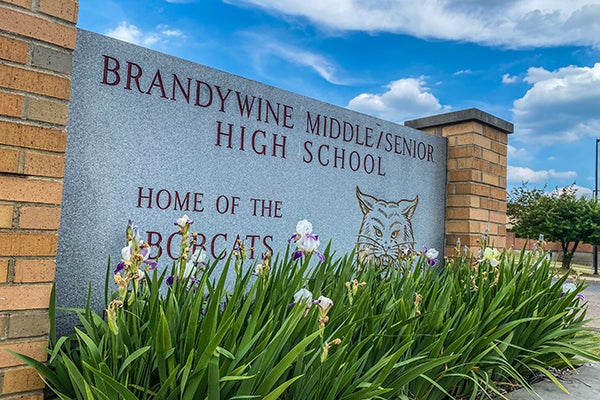Dowagiac Union Schools Board interviews first three candidates
Published 8:53 am Thursday, June 13, 2019
DOWAGIAC — Empathy, declining enrollment and school board-superintendent relationships were addressed by three superintendent candidates interviewing with the Dowagiac Union Schools Board of Education Tuesday evening.
The school board has been in the process of selecting a new superintendent to replace Paul Hartsig with the support of the Michigan Association of School Boards. The board interviewed three candidates Tuesday and interviewed three additional candidates Wednesday evening. Further candidate coverage will be in Friday’s Dowagiac Daily News.
Candidates kicking off the first day of interviews included Kelly Eckhardt, the high School principal at Fennville Public Schools, Gwendolyn Dangerfield, the elementary school principal of Wyoming Public Schools and Patricia Robinson, the curriculum and instruction director at Benton Harbor Area Schools and, as of June 10, an interim superintendent.
Kelly Eckhardt kicked off the interviews, outlining her 20 years of high school principal experience, including her background in alternative education at Everett Public Schools for 13 years. Eckhardt received a bachelors degree in business administration from Baker College and a masters degree in education specifics and leadership at Central Michigan University. She also received a masters of education at CMU.
Gwendolyn Dangerfield sat down as the second interview candidate and mentioned her 27 years of experience working for Kalamazoo Public Schools in various roles including teacher, assistant principal and principal. She obtained a bachelors degree in speech pathology and two masters degrees from Western Michigan University in education leadership and audiology. She received an educational specialist degree in curriculum and instruction from the University of Michigan and teaches several classes on effective leadership at WMU.
Just two days into her new role as interim superintendent at Benton Harbor Area Schools, Patricia Robinson, the final interview candidate, introduced herself to the board, highlighting her 22 years of experience in education. She received a bachelors degree in elementary and early childhood education from Western Michigan University and two masters degrees from Walden University, one in early childhood education and teaching and administration, and a second in educational/instructional technology.
School board member Terry Groth asked candidates to outline their experience in managing the needs of a district experiencing a decline in enrollment while maintain a focus on student learning.
“Every district I’ve been in has dealt with this to some level. You know, we’ve had to make cuts,” Eckhardt said. “The goal is to always to keep that away from kids as much as possible. We want to keep our class sizes decent, and we want to keep our support systems for kids that I know are working. When you start losing students, you have to start looking at the staff. I have not been in a situation where we’ve had to cut teachers. We were able to shift around as people retired and left and replaced as we could. More importantly, I would want to focus on how do we retain [students]. … I would want to focus more on promoting the good work that you’re doing and providing the service and getting the kids back in.”
“First of all, you have to look at your teachers,” Dangerfield said. “I say that because the teachers need to know and understand that leadership has faith in their efforts and their vision and goals as well. To make sure they have the right frame of mind to support the initiatives and then we can kind of rally together to let the community know what we are all about. This particular school what we did was work on some out of the box options to kind of reengage the community and then also to kind of get people a little more excited about coming back. So basically, we had to sit down as a group and once again recruited building staff, central office as well as parents, and we had to think of some out of the box ways to continue to excite the students and their parents that this was certainly a place they wanted to send their babies.”
“Our district has for a number of years undergone a decline in enrollment,” Robinson said. “None of us have figured out the formula to stop the enrollment crisis. I will say we have been very resolute and continue to focus on what our goals are. We make sure students know we care about them and make sure the staff know we are there for them. We communicate with parents, showing them evidence of what we are actually doing. We implemented a new ELA program. … we are determined if we have a gift of time, we can be consistent with our leadership and the path we are going, then we can have evidence to our parents, to our overall community that we can be efficient in our schools.”
Ron Jones asked candidates what empathy means to them and the role it would have in Dowagiac Union Schools.
“Empathy means having the ability to put yourself in someone else’s shoes and understanding what they are going through,” Eckhart said. “It speaks to how can we provide a service for our kids and our families if we don’t understand what they are dealing with or it is what they want. Again, in growing up with alternative education, that’s where my heart is. It’s really important that our students know we care about them. I think it’s important that every staff member understands that and treats kids in that way.”
“I have worked to consistently remind others that we can’t expect when those students walk through our door that they’ve been offered the same background of opportunities that we’ve experienced,” Dangerfield said. “I really support the understanding that regardless of the child, we have to have some degree of understanding, flexibility and support of those kids coming in not knowing what they’re coming from.”
“Empathy: being able to understand the challenges our students come with,” Robinson said. “As an educator, we have to have strategies that we’ve learned over time… being able to relate to a student and understand what they are coming to school with.”
With communication being an echoed message throughout the night, the schoolboard also asked candidates what an effective relationship between the board and superintendent looks like and how each candidate would cultivate such relationships.
“I’ve never been a superintendent,” Eckhart said. “I think a really good functioning relationship is having open communication always with anything that is going on. Everybody is doing their job, staying in their own role and things they are supposed to do. Again, I think open communication is very important. I think it’s important to get to know the board in the same way I would want to get to know other leadership teams. Communication is key, I think that’s most important.”
“With a working relationship between the superintendent and the board, there has to be full disclosure. There has to be transparency,” Dangerfield said. “As a superintendent, or any leader, there can’t be the assumption that this is small, they don’t need to know this. It has to be remembered that it is your job to have that two-way communication. Written oral communication has to be timely, and it has to have enough detail where it gives information that is needed. The biggie is — I go back to that full disclosure, just making sure the board is allowed to support the school district in a manner of which you are capable of by being totally equipped to do so.”
“The board has a vision for the district and the superintendent needs to understand that vision,” Robinson said. “As the board and the superintendent work collaboratively outlining the steps to get to that vision … having an open line of communication is super important. Another thing is being transparent, especially for the [assistant superintendent] role I’m playing now. It’s very important for me to be open and upfront with the board about what is happening in the district so their confidence is built with me.”
Following each interview, candidates were given the opportunity to ask the school board questions. Two candidates asked what a board was looking for in their new superintendent which elicited responses from each member. Board members said enrollment, open line of communication between the public, the board and superintendent, strong leadership at the end of Dowagiac Union School’s bond mission and maintaining a balanced budget.
Feedback surveys were available to members of the public and later completed and collected following each candidates’ interview. These surveys were later used in open discussions among The Dowagiac Union Schools Board of Education and Jay Bennet, an MASB assistant director of executive search services. The board and Bennet unanimously agreed a lack of research of Dowagiac Union Community Schools showed among the candidates.
“Whether [the candidates] didn’t do the research or whether they just didn’t do a good job of showing they did the research, it’s unclear, but it does appear they could have done a little bit more studying,” Bennet said. “Two rounds of interviews should be expected.”
Schmidt said, there is no limit of candidates the school board can bring to the next round of interviews, but they would like to bring it down to two candidates.






